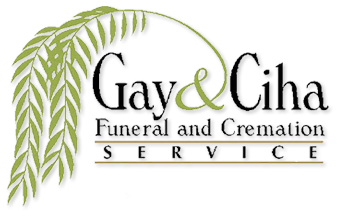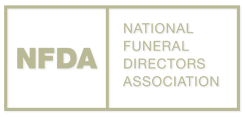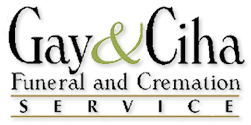What to do when death occurs…
Don’t know what to do first? Let us help.
When a death occurs, emotions often override clear thought. In an effort to assist you, we have provided a list of some of the important information needed when making the arrangements. You will find it helpful to review this information prior to meeting with one of our funeral directors.
What To Do When a Death Occurs: At Home or at Work
When a death occurs at home or in the workplace, a family member or co-worker should contact emergency personnel and the person’s physician if he or she was under a doctor’s care. If the death occurs at home with family or friends present, and the person is under a physician’s care, the family will want to call us directly.
If the death occurs unexpectedly the law requires you to call the police department or sheriff department. They will contact the medical examiner’s office. After visiting with the family, the medical examiner will determine if there is going to be an autopsy or not. If there’s no autopsy, the medical examiner will contact the funeral home and the funeral home will come to the place of death at that point.
In any case if you are not sure of who to notify or what to do, please call us 319-338-1132, and we’ll assist you in notifying the proper agencies.
What To Do When a Death Occurs: While Under Supervised Care
When a death occurs in a care facility, such as a hospital or nursing home, the professional staff will notify you and the necessary authorities. If the name of the funeral home has been left with them, the institution will notify the funeral home at the time of the death. The funeral director will contact you immediately following their notification to help you proceed.
If a loved one was in the care of a hospice program, a hospice representative will give family members instructions and procedures to follow. Hospice will contact the funeral home.
What To Do When a Death Occurs: Away From Home
If the death occurs away from home, always call your local funeral home. They will make all of the arrangements no matter where the death occurs.
Overall, it’s less trouble and imparts fewer burdens on the family. It is also less expense if you involve just one funeral home from the onset and let them make all the contacts, and you can trust the reputation of services and information being provided.
Your Support Circle: Friends and Family
Our staff members are experienced professionals who can provide much of the information you need, emotional support and compassionate guidance.
While you may ask the director any questions at this time, you will be able to discuss the arrangements in detail later when you meet in person. During this initial call, the funeral director will gather information to be able to transport your loved one to the funeral home.
The funeral director may ask you several questions, including whether your loved one made any pre-arrangements. The director will also schedule a date and time for you to meet at the funeral home and will let you know what you should bring with you. Others you will need to call are:
- Family members and friends
- Clergy or other spiritual advisors
Arrangements: Important Questions
If there is no pre-plan in place, there are several other questions that you may have to have answered in regards to the death of your loved one:
- Do I have to have embalming?
- Do I need to purchase a casket?
- What about cemetery arrangements?
- Does the family have to engage the services of a minister?
- What type of service should we have?
By contacting our staff, we’ll be able to help answer your questions and assist in making the appropriate plans. One of the best ways to make sure that all of your questions and desires are taken care of is to make pre-arrangements. This is as simple as outlining your wishes to having all of the details written down and can also include the financial arrangements prepaid. Please contact one of our funeral directors at (319) 338-1132 to learn more about pre-arrangements.
What to Expect When You Arrive at the Funeral Home
One of our funeral directors will welcome you and other family members to sit around a table and share that life that you are here to remember. In this time we will gather information needed to complete legal documents on your behalf, information to assist in writing the obituary either by you and family members or by us from the funeral home, and we will talk on how we can care for your loved one and your family as you we walk through the many options available.
This process is likely to include:
- Preparing and filing the official death certificate
- Scheduling the location, date and time of services or events
- Selecting a casket, urn or other items
- Preparing an obituary notice
- Scheduling vehicles
- Selecting pallbearers
You may also sign necessary authorizations or make arrangements to have them signed by the appropriate family members.
We’d like you to bring any photos, a favorite song, or memorabilia so that you and the funeral director can better discuss how you would like your loved one to be remembered. Having these things, and knowing their favorite song or favorite gathering place – even their favorite activity – will help us create a truly fitting memorial service.
Our funeral directors will assist you in planning a loving tribute that captures the spirit of the person whose life you wish to remember and will discuss personalization with you during your funeral arrangement meeting.
The following checklist will help you remember what information about the decedent and items will be needed when meeting with one of our funeral directors.
- Full legal name
- Home address
- Social Security number
- Date of birth
- Place of birth
- Father’s name
- Mother’s maiden name
- Veteran’s discharge papers (DD-214)
- Recent Photograph
- Highest education
- Occupation
- Place of burial (if applicable)
- Clothing
- Clergy name and phone number
- Survivors (name, relationship and cities of residence)
- Insurance policies (if applicable)
Clothing
A full complement of clothing is utilized, including undergarments and outer clothes of your choice.
Other Personal Items
Jewelry, eye glasses and religious items (rosary, medals) may be brought it when the arrangements are made, or prior to the service. On the day of the funeral, we will confirm which items you wish to be left in the casket and which are to be removed.
For Cremation
Although not required, we prefer that the family bring in clothing if desired. We strongly suggest that any personal items such as jewelry, pictures and other memorabilia be removed prior to cremation as they will be destroyed during the cremation process. These items may, instead, be placed into the selected urn after the cremation has taken place.
Dan Ciha will be honored to explain all of the options available to you. He is a licensed funeral director.










